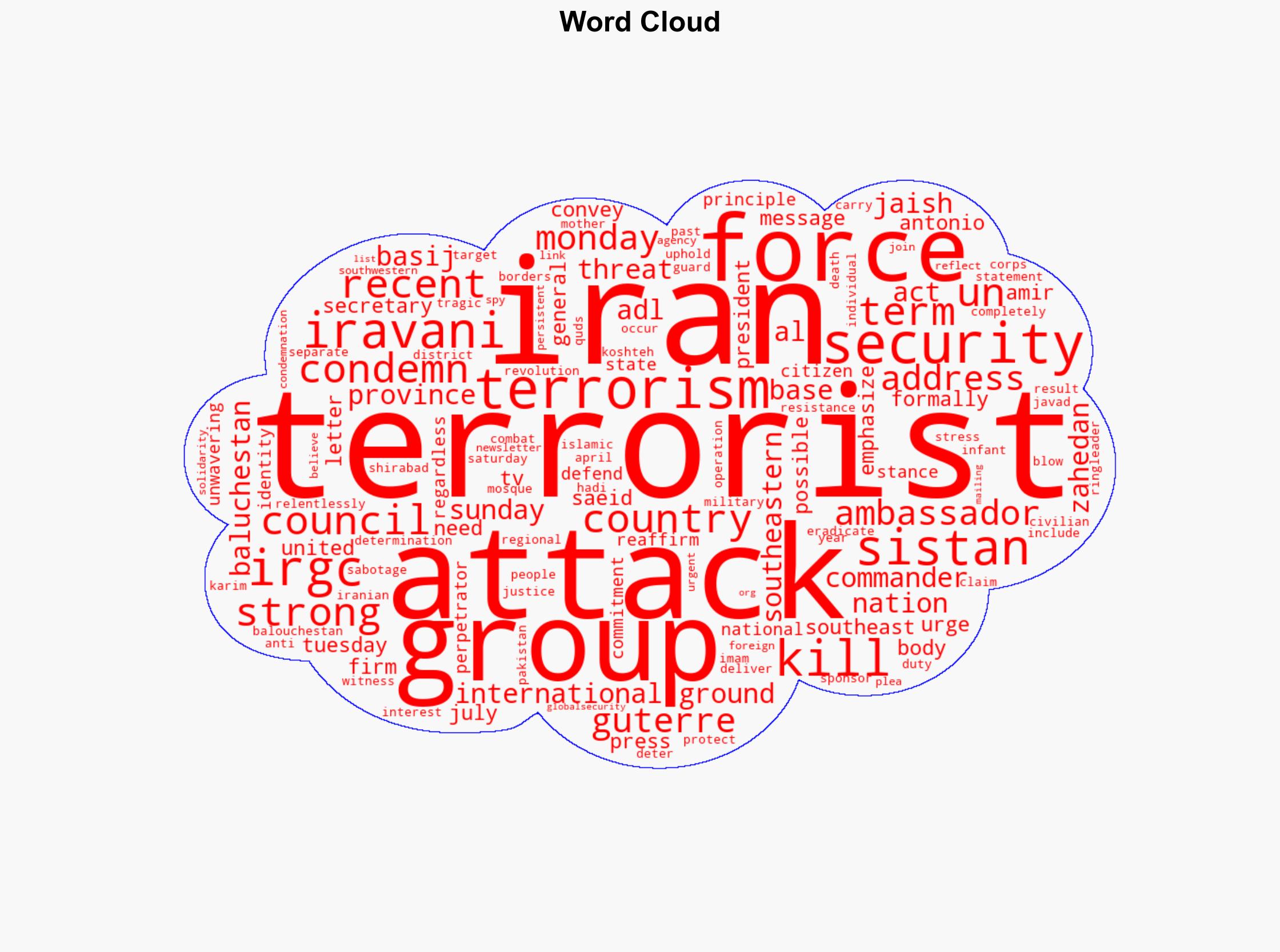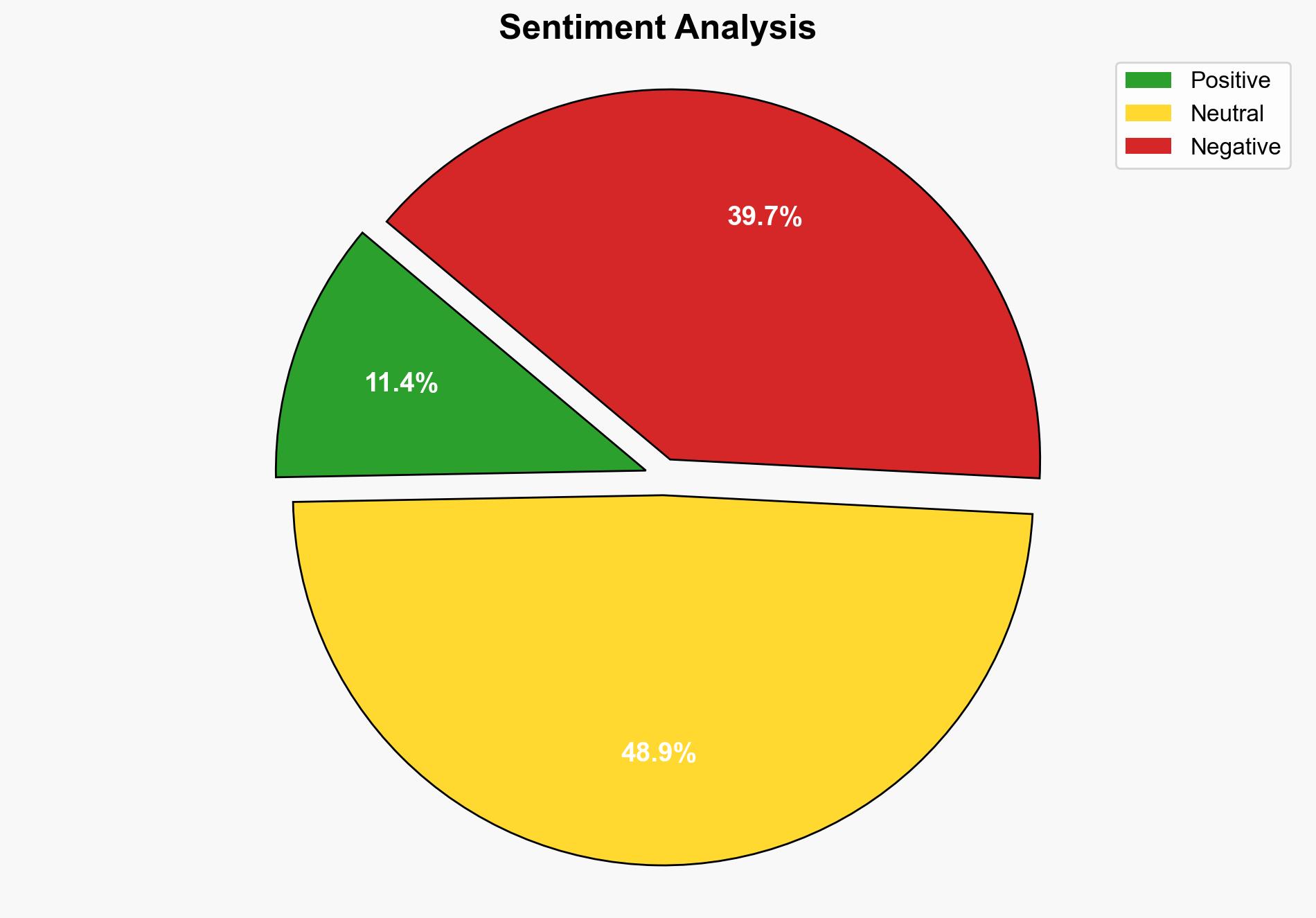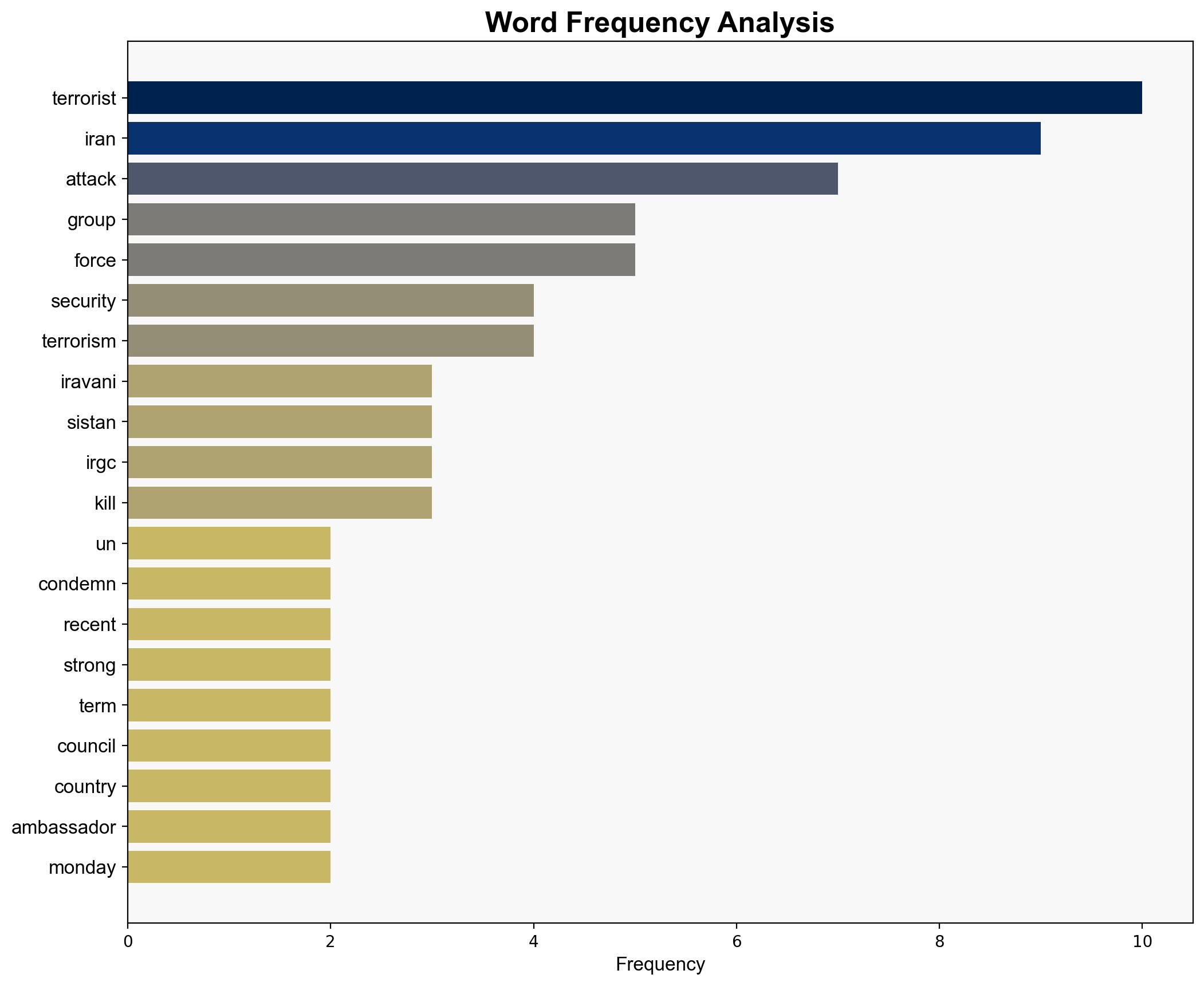Iran calls on UN to condemn recent terrorist attack in strongest terms – Globalsecurity.org
Published on: 2025-07-30
Intelligence Report: Iran calls on UN to condemn recent terrorist attack in strongest terms – Globalsecurity.org
1. BLUF (Bottom Line Up Front)
The most supported hypothesis is that Iran’s call for UN condemnation is primarily aimed at garnering international support to legitimize its counter-terrorism actions domestically and regionally. Confidence level: Moderate. Recommended action: Monitor Iran’s diplomatic engagements and regional military activities for signs of escalation or shifts in alliances.
2. Competing Hypotheses
1. **Hypothesis A**: Iran’s appeal to the UN is a strategic move to gain international legitimacy and support for its counter-terrorism operations, particularly against groups like Jaish al-Adl, which it claims are supported by foreign entities.
2. **Hypothesis B**: Iran’s request for UN condemnation is primarily a domestic political maneuver to unify internal factions and bolster nationalistic sentiments in response to perceived external threats.
Using ACH 2.0, Hypothesis A is better supported due to Iran’s historical pattern of seeking international validation for its security measures and the emphasis on foreign involvement in the attacks.
3. Key Assumptions and Red Flags
– **Assumptions**: It is assumed that Iran’s claims of foreign involvement are accurate and not exaggerated for political gain. Additionally, it is assumed that the UN’s response will significantly impact Iran’s domestic and regional strategies.
– **Red Flags**: Lack of independent verification of foreign involvement in the attacks. Potential bias in Iran’s narrative due to its geopolitical interests.
– **Blind Spots**: The internal political dynamics within Iran that may influence its international appeals are not fully explored.
4. Implications and Strategic Risks
– **Geopolitical**: Increased tensions between Iran and neighboring countries, particularly if foreign involvement is substantiated.
– **Economic**: Potential impact on regional trade routes if security operations intensify.
– **Cyber**: Risk of cyber retaliation from groups linked to the attacks or their supporters.
– **Psychological**: Heightened nationalistic fervor within Iran, potentially leading to increased support for hardline policies.
5. Recommendations and Outlook
- Monitor Iran’s military and diplomatic activities closely for signs of escalation.
- Engage in dialogue with regional partners to mitigate potential spillover effects.
- Scenario Projections:
- Best: UN condemnation leads to increased international cooperation against terrorism in the region.
- Worst: Escalation of military operations leads to broader regional conflict.
- Most Likely: Continued tension with sporadic skirmishes and diplomatic posturing.
6. Key Individuals and Entities
– Amir Saeid Iravani
– Antonio Guterres
– Javad Karim Koshteh
– Jaish al-Adl
7. Thematic Tags
national security threats, cybersecurity, counter-terrorism, regional focus





